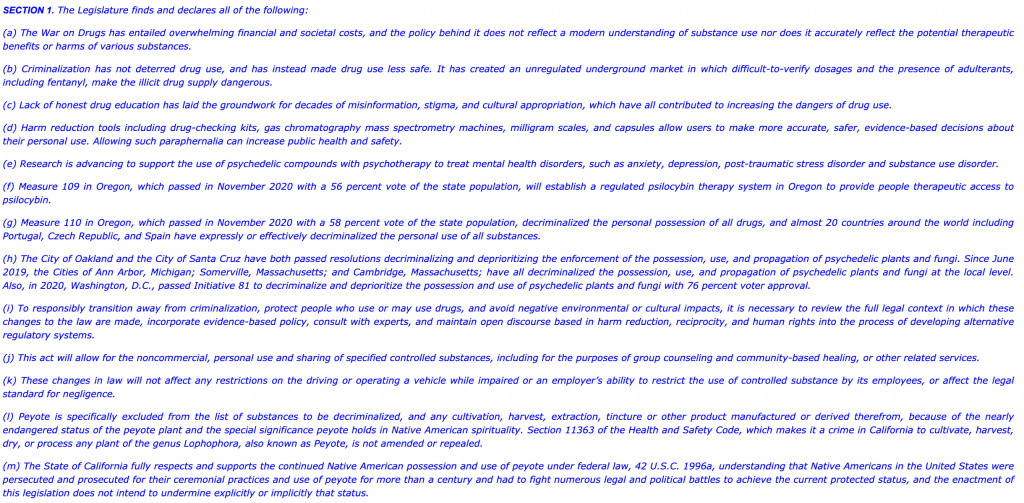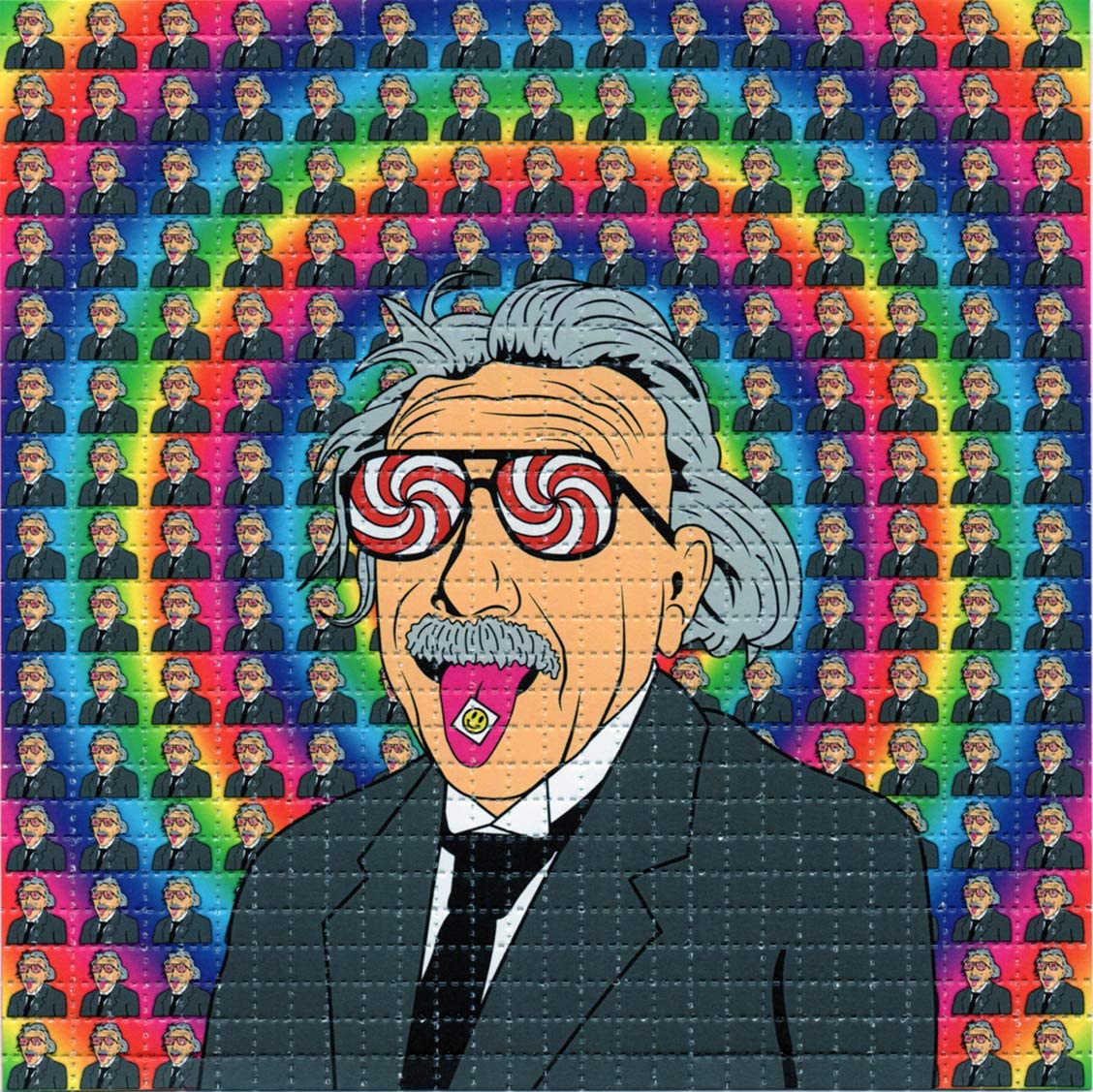California Bill Would Decriminalize LSD and Other Psychedelics
By Lauren Mendelsohn
April 19, 2021
Happy Bicycle Day! In case you didn’t know, April 19 is celebrated as “bicycle day” by scientists and psychonauts around the world. Bicycle day honors the day in 1943 when Dr. Albert Hofmann, the Swiss chemist who first synthesized lysergic acid diethylamide (LSD) in his laboratory, ingested some before riding his bicycle home from work and observed its effects — the first intentional “acid trip.” LSD and many other psychedelic substances have been prohibited in the United States for most of the time since then, but could Californians soon be able to legally enjoy Bicycle Day in the same way that Dr. Hofmann did?
A few months ago, we wrote about how California State Senator Scott Weiner intended to introduce legislation that would decriminalize psychedelics. Well, that happened: on February 17, 2021, Senate Bill 519 was introduced in the state legislature by Senator Weiner; the co-authors are listed as Senators Kamlager and Newman, as well as Assemblymembers Low and Quirk. In recent weeks the bill has been heard and approved by both the Health Committee and the Public Safety Committee, and it continues to move through the legislative process.
SB 519 would add to, as well as amend certain sections of, California’s Uniform Controlled Substances Act. Among other things, it would make it legal for individuals over the age of 21 to cultivate, process, obtain, transport, possess, certain psychedelic substances for personal use or social sharing. The bill defines “social sharing” as “the giving away or consensual administering of a controlled substance described in this section by a person 21 years of age or older, to another person 21 years of age or older, not for financial gain, including in the context of group counseling, spiritual guidance, community-based healing, or related services.”
This proposed exemption from criminal liability for social sharing would transform California’s legal landscape with respect to psychedelics, legalizing the giving away of psychedelics, conduct which at this time could be prosecuted as a non-reducible felony punishable by “imprisonment pursuant to subdivision (h) of Section 1170 of the Penal Code for a period of two, three, or four years.” Health & Safety Code Section 11379.
The substances that would be covered include:
- Lysergic acid diethylamide (LSD)
- Psilocybin (found in “magic mushrooms”)
- Psilocyn (found in “magic mushrooms”)
- 3,4-methylenedioxymethamphetamine (MDMA)
- Dimethyltryptamine (DMT)
- Ketamine
- Ibogaine
- Mescaline
Additionally, the bill would remove criminal penalties from possessing paraphernalia related to these drugs, as well as from possessing drug testing/checking kits which are used to determine a substance’s identity (and are considered a harm reduction tool). Furthermore, the bill would create a pathway to redesignate or dismiss previous convictions for psychedelic-related offenses that are made legal or reduced in severity.
SB 519 includes some protections for minors. For example, it would be a misdemeanor for an adult to possess one of the above-listed substances on school grounds when minors are present; a “wobbler” for an adult to give one of these substances to a minor under the age of 18; and a felony for an adult to give one of these substances to a minor under the age of 14. Possession of these substances by a minor would be an infraction and would require drug education or counseling.
The introductory language of SB 519 is rather remarkable for a bill authored by legislators in that it explicitly calls out the War on Drugs as a failure that has had devastating impacts on individuals, communities, and society overall; mentions the potential therapeutic benefits of psychedelics; brings up the dangers of a lack of honest drug education; and highlights the importance of harm reduction. These have been talking points of drug policy reform advocates for years, so seeing it in the text of this bill is both surreal and overdue.

While this bill is very progressive, California would not be the first place to take such action. Cities, states and entire nations around the world have recently moved to decriminalize psychedelics and other drugs, recognizing the failure of prohibition on individuals and communities as well as the therapeutic potential that many of these substances have. We support this effort, and will continue to watch SB 519 as it moves through the legislature.
This information is provided as a public educational service and is not intended as legal advice. For specific questions regarding psychedelics, cannabis, and other drug laws in California, contact the Law Offices of Omar Figueroa at 707-829-0215 or info@omarfigueroa.com to schedule a confidential legal consultation.

